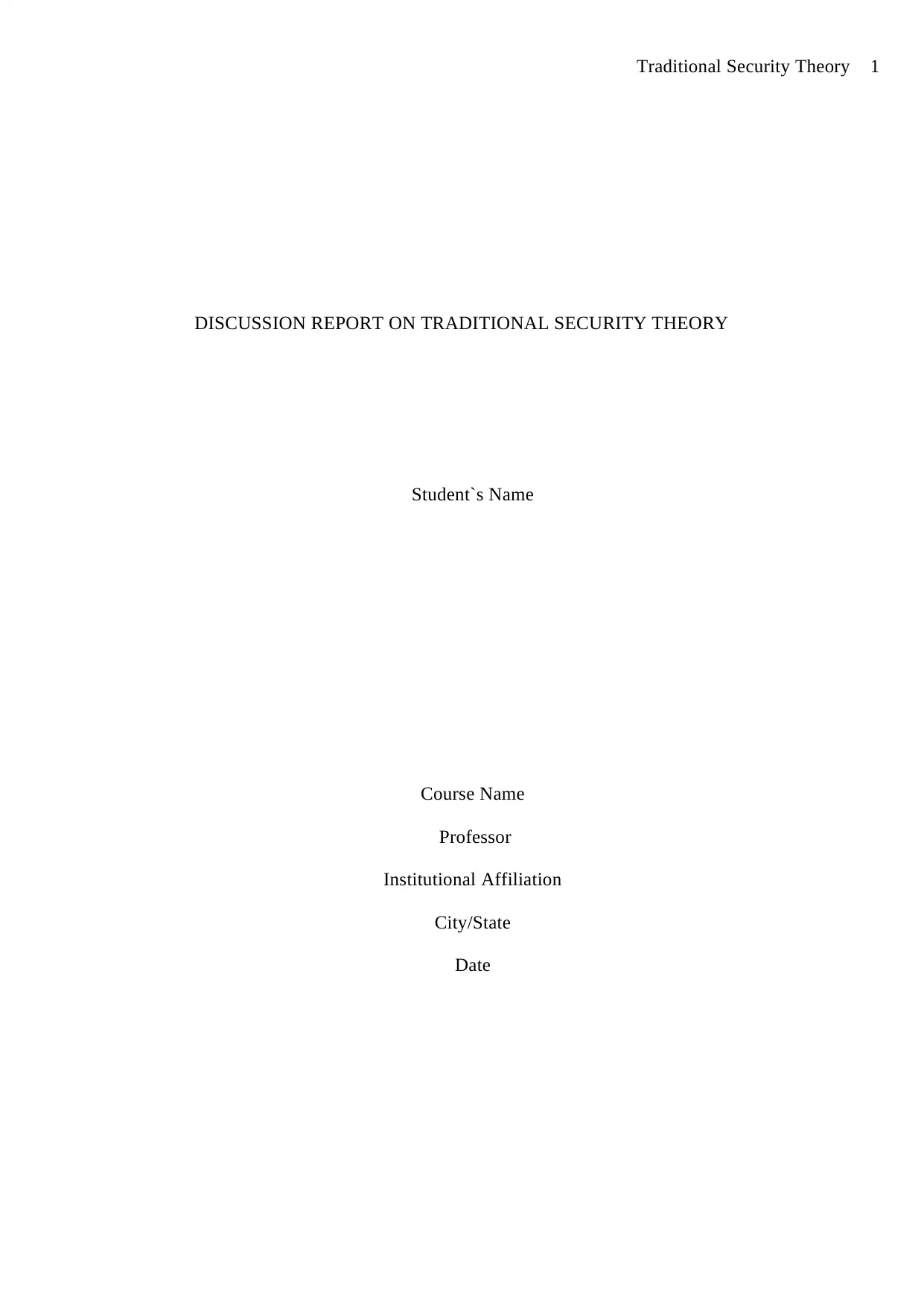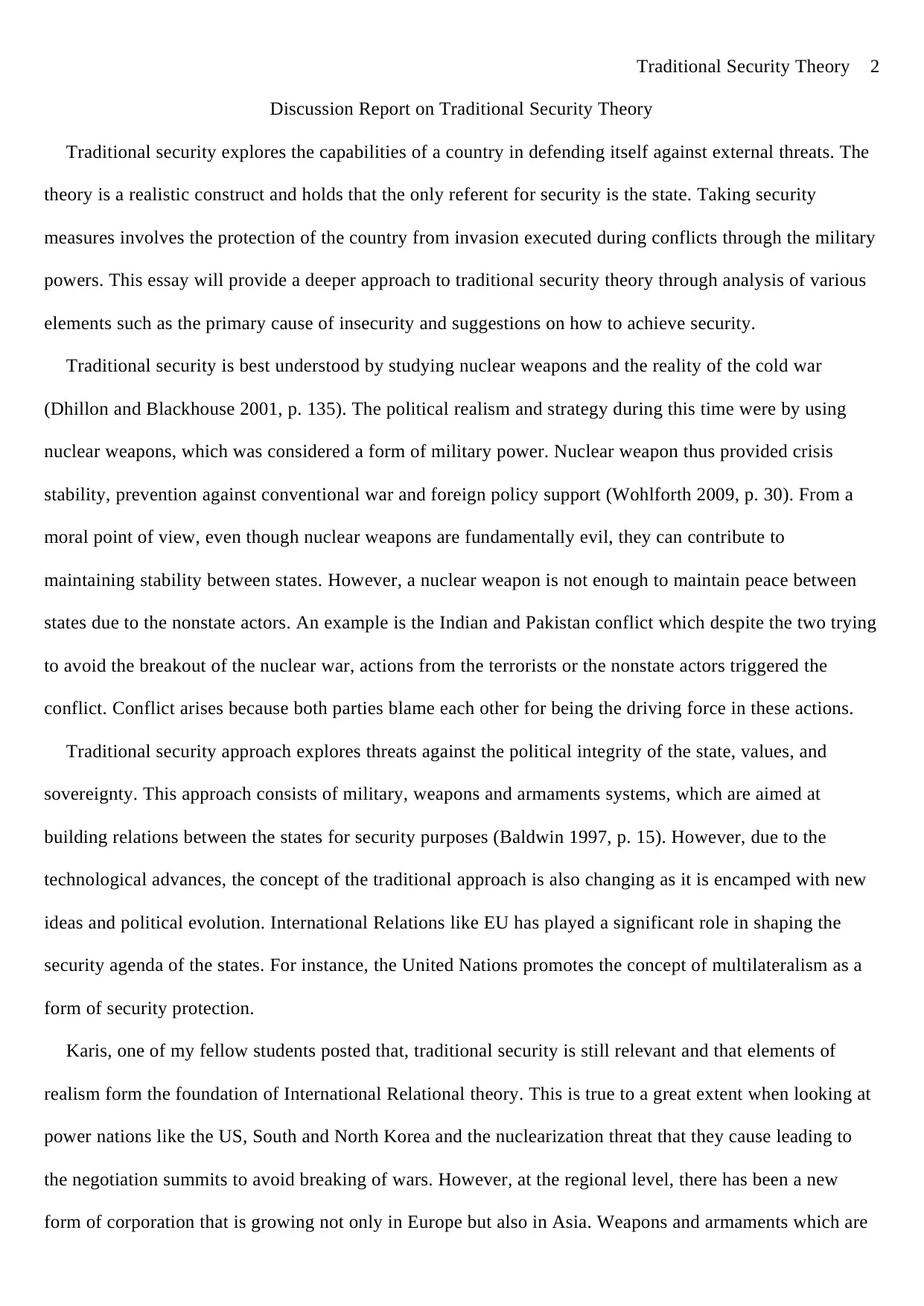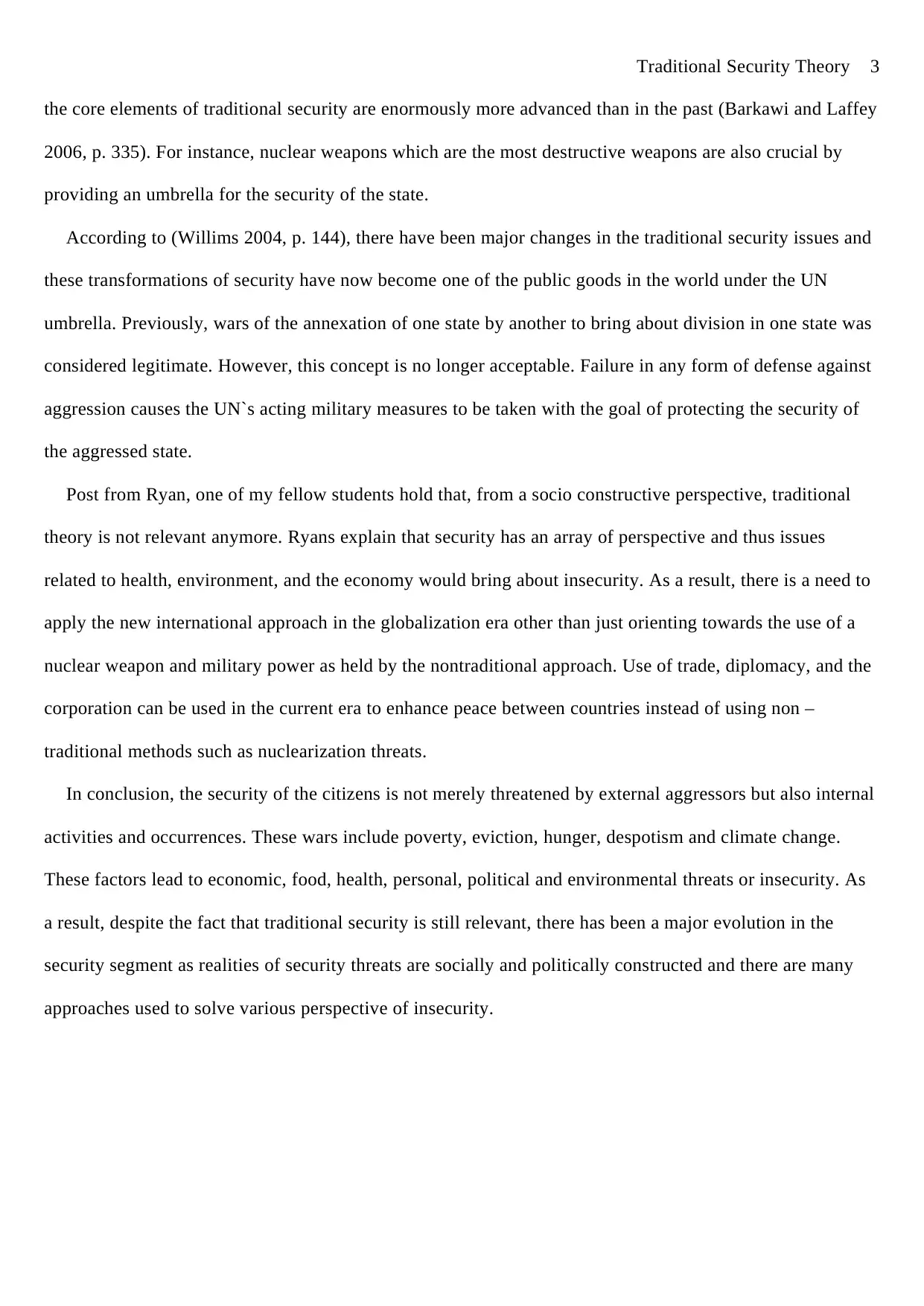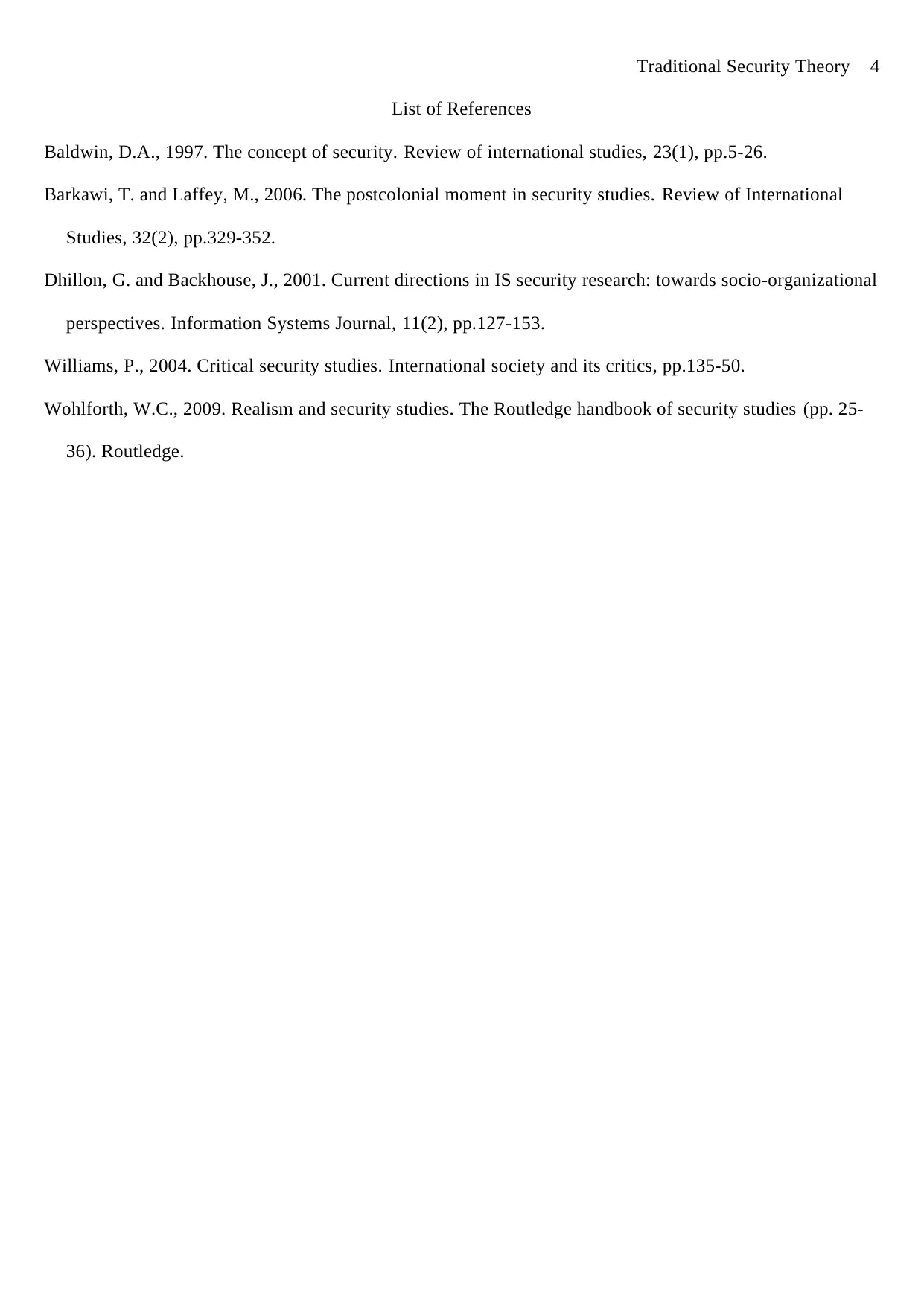Traditional Security Theory: A Discussion Report Analysis
VerifiedAdded on 2023/06/08
|4
|1006
|141
Discussion Board Post
AI Summary
This discussion report delves into the intricacies of traditional security theory, examining its core tenets and evolution in the context of international relations. The report highlights the theory's focus on state-centric security, emphasizing military capabilities and the protection of national interests from external threats. It explores the significance of nuclear weapons during the Cold War and their impact on crisis stability, while also acknowledging the limitations of a purely military approach due to the influence of non-state actors. The report further analyzes how technological advancements and the rise of international bodies like the EU and the UN have reshaped the security landscape, incorporating concepts of multilateralism and evolving definitions of security threats. The discussion also presents contrasting perspectives, including the socio-constructivist viewpoint that challenges the traditional focus on military power and advocates for a broader understanding of security encompassing economic, environmental, and health-related concerns. The conclusion underscores the enduring relevance of traditional security while recognizing the need for a more comprehensive approach that addresses a wide range of internal and external factors contributing to insecurity. The report cites various academic sources to support its arguments, providing a well-rounded analysis of traditional security theory and its contemporary relevance.
1 out of 4











![[object Object]](/_next/static/media/star-bottom.7253800d.svg)